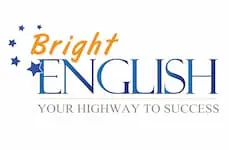El Past Simple
- El Past Simple principalmente nos ayuda a describir información general en el pasado. ¿Qué significa “información general”?
- Examinemos la siguiente oración: “I liked chess (when I was a kid)” Esta afirmación fue verdadera en general en un momento específico en el pasado (cuando era niño). Esto era cierto en ese momento, antes de él y, hasta donde sabía, después de él. Todas las cláusulas a continuación siguen este principio, con la excepción de una.
Usamos el Past Simple para hablar de:
- Hechos en un momento específico en el pasado
- Frecuencia de acciones o hábitos en el pasado (se prefiere Used To)
- Situaciones constantes en el pasado
- Narrativa de una historia o acciones cronológicas en el pasado
- Oraciones definitorias en el pasado con was/were
| I was in New York last year at Christmas. (hechos en un momento específico en el pasado) | In the 90's, Germany bought weapons from the U.S. (hechos en un momento específico en el pasado) |
| I went to English lessons twice a week. (frecuencia de acciones o hábitos en el pasado) | They went swimming every Friday. (frecuencia de acciones o hábitos en el pasado) |
| I lived in New York back then. (situaciones constantes en el pasado) | He worked as a teacher in 2005. (situaciones constantes en el pasado) |
| Jordan passed to Pippen, Pippen drove the ball to the hoop and dunked the ball. (narrativa de una historia o acciones cronológicas en el pasado) | He got up at 8:00, washed his face, got dressed and went to work. (narrativa de una historia o acciones cronológicas en el pasado) |
| I was a student \ She was happy. (oraciones definitorias en el pasado con was/were) | They were here \ He was from New York. (oraciones definitorias en el pasado con was/were) |
Estructura del Past Simple:
I:
I studied at Bright English.
I didn’t study at Bright English.
Did I study at Bright English?
We:
Ben and I (we) studied at Bright English.
We didn’t study at Bright English.
Did we study at Bright English?
You:
You studied at Bright English.
You didn’t study at Bright English.
Did you study at Bright English?
They:
Ben and Maya (they) studied at Bright English.
They didn’t study at Bright English.
Did they study at Bright English?
He:
Ben (he) studied at Bright English.
He didn’t study at Bright English.
Did he study at Bright English?
She:
Maya (she) studied at Bright English.
She didn’t study at Bright English.
Did she study at Bright English?
It:
It (the computer) studied well.
It didn’t study well.
Did it study well?
Reglas del Past Simple:
Sujeto + v2 (I did)
- Usamos did para formar preguntas.
- Usamos didn’t para formar negaciones.
- I, we, you, they, he, she, it = did.
- I, we, you, they, he, she, it = didn’t.
- Los auxiliares (verbos de apoyo) did/didn’t cancelan la forma d, ed, ied o V2. (I took\I didn’t take)
- Hay dos tipos de verbos en el pasado: A) Verbos regulares —> (study –> studied.) B) Verbos irregulares —> (take 🡪 took \ see 🡪 saw \ break 🡪 broke) <— Estos debemos memorizarlos.
- Reglas para D, ED, IED: 1) La mayoría de los verbos toman ED (develop->developed). 2) Los verbos que terminan en la letra E solo toman D (like->liked). 3) Los verbos que terminan en una consonante + Y toman IED (Cry🡪cried).
- Las negaciones y preguntas con was/were se forman de manera diferente a todas las demás oraciones en el Past Simple:
I was not a student | was I a student? | She wasn’t happy | was she happy? | They weren’t here | were they here? | He wasn’t from New York | was he from New York?
Expresiones de tiempo comunes y adverbios de frecuencia en el Past Simple.
Last Sunday\week\weekend\month\year. In 1992\3 etc. in the nineteenth century, in the 60’s, when I was a _____ ,always, very often, often, usually, sometimes, occasionally, every now and then, every now and again, seldom, hardly ever, rarely, never.

